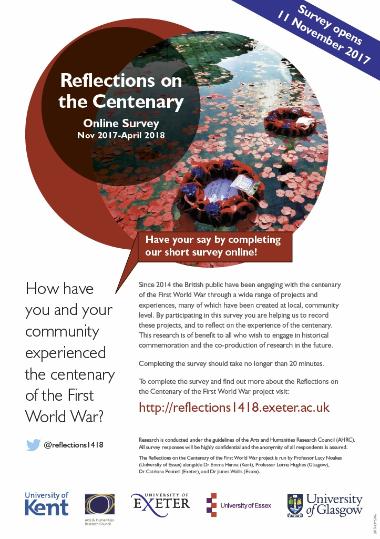Updated News 21st November 2017
Being Human Event at Queen's University Belfast
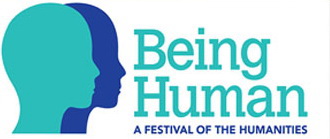 This year, Queen’s University, Belfast played host to a unique national festival of the humanities which explored the diversity and vitality of the humanities and its relevance to people’s lives. The Being Human Festival, the first and only national festival of the humanities was led by the School of Advanced Study, University of London in partnership with the Arts & Humanities Research Council and the British Academy. As one of five Being Human Hubs across the UK, Queen’s University showcased, through a number of workshops and events, how humanities research can inspire and enrich our own lives and our relationships with others.
This year, Queen’s University, Belfast played host to a unique national festival of the humanities which explored the diversity and vitality of the humanities and its relevance to people’s lives. The Being Human Festival, the first and only national festival of the humanities was led by the School of Advanced Study, University of London in partnership with the Arts & Humanities Research Council and the British Academy. As one of five Being Human Hubs across the UK, Queen’s University showcased, through a number of workshops and events, how humanities research can inspire and enrich our own lives and our relationships with others.
On Thursday 21st November at the Brian Friel Theatre, representatives of community groups from across Northern Ireland came together to discuss their involvement in The Medals All Round Research Initiative (MARRI) – a Living Legacies project which explored how drama and theatre methods can challenge the contested histories in Northern Ireland’s commemorations of the centenary of the First World War. The event, entitled The First World War and Community Memory presented excerpts and analysis of the performances and films which were created by community groups in partnership with researchers and facilitators from Queen’s University. The event was hosted by Dr Kurt Taroff, Senior Lecturer in Drama in the School of Arts, English and Languages and Dr Michelle Young, Project Officer at Living Legacies Engagement Centre and one of the drama facilitators from
Each contributor told how the history and legacy of WW1 in their local communities were transformed into art in the form of performances and films. They explained how the MARRI project allowed for the creative engagement with historical memory and discussed how the model of drama and community interaction can contribute towards the greater cultural engagement of disadvantaged and otherwise underserved communities.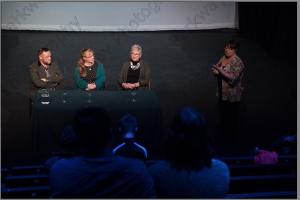
The audience were treated to excerpts of two of the films produced through the project. The Tonagh Neighbourhood Initiative’s film, Our Women’s War examined the role of women at home during the war and Sarahjane explained how this work was based on the lives of their grandmothers who took on the jobs vacated by men who went off to fight. Dee Crooks introduced an excerpt of his group’s film, The Rose and the Fusilier which was based on the true story of the Naylor family from Dublin and their involvement in the fighting in France and in Dublin during 1916. Pheme Glass discussed the Live and Learn community group’s performance, Of Bicycles and Fallow Fields which saw members perform a selection of real and created letters based on the themes of family, love and loss. Pheme also read extracts from her recently published first novel, The Blossom or The Bole which is set against the religious difference and community divide of rural Tyrone in the days leading up to and the outbreak of World War One.
In presenting their work at this Being Human event, participants discussed how the MARRI project allowed for an interrogation of the complex narratives that exist within the context of remembering the past in Northern Ireland. By sharing their experience with the assembled audience, they demonstrated how drama and theatre methods can explore the human experience of history and therefore be a powerful way to explore, celebrate and communicate a sense of heritage and community.
Queen's University Being Human Festival 2017

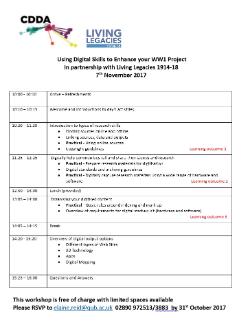

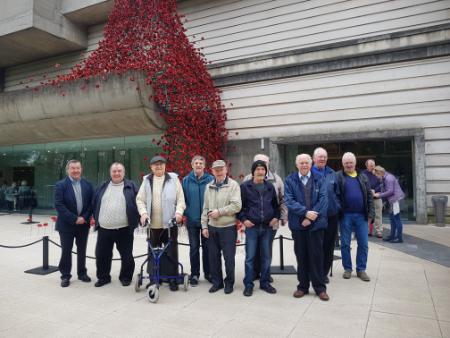
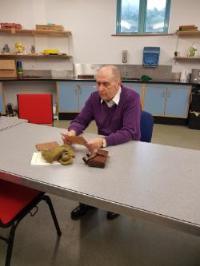
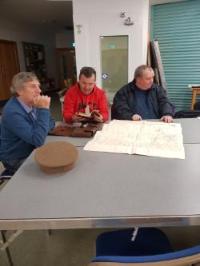
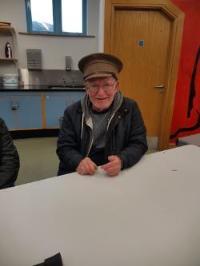

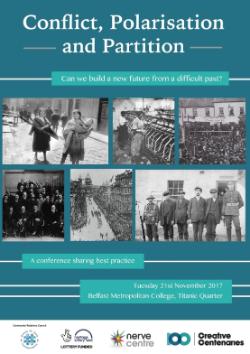
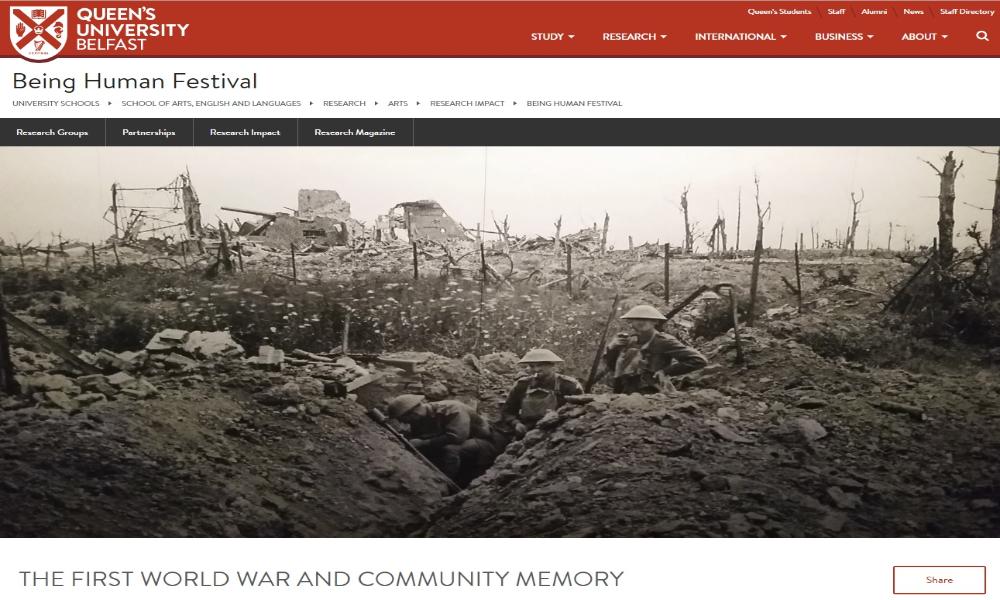
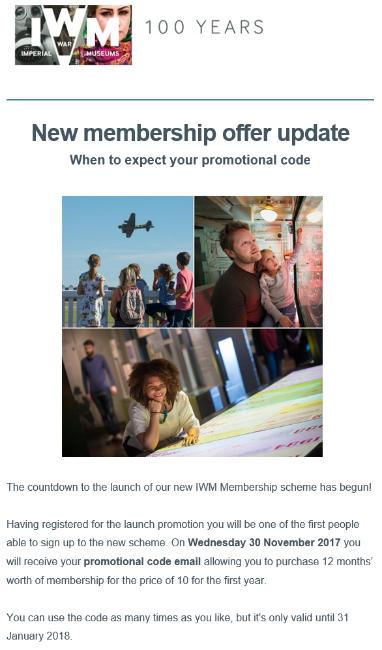
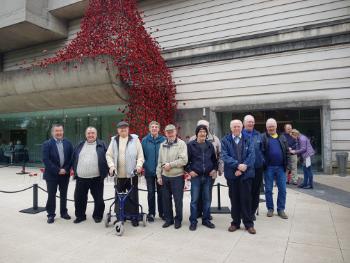
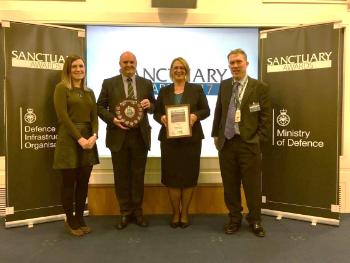
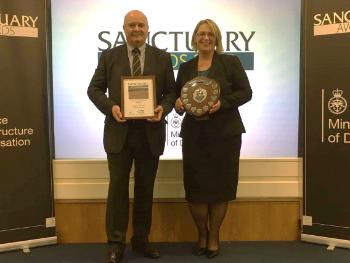
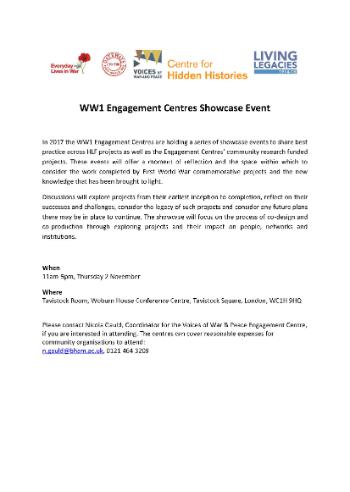
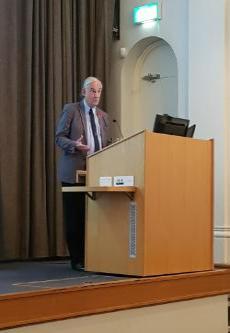
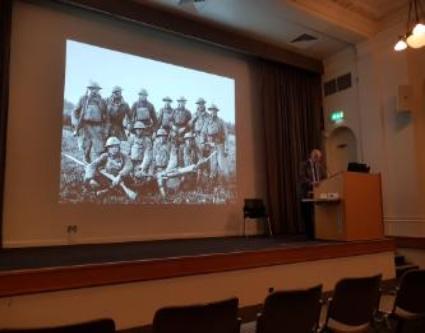
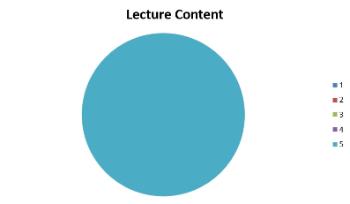
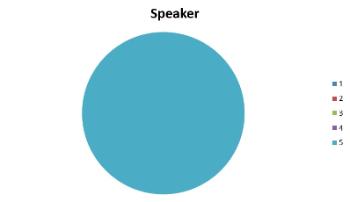


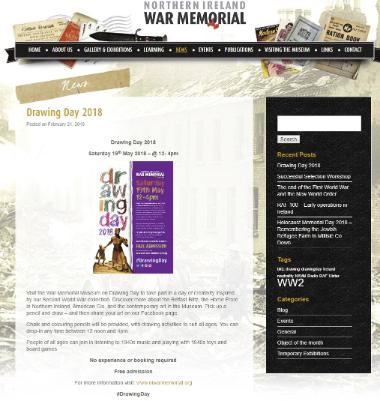

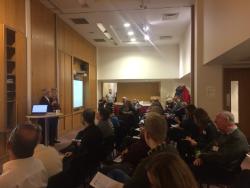 illustrated and comprehensive discussion on the uses and benefits of digital tools and methods in the preservation and interpretation of historical memory. Prof. Hughes then addressed the audience and invited them to contemplate on the digital methods they too might have used in their professional and/or amateur historical research, the ways in which digital commemoration has facilitated their undertakings, and the challenges they might have faced while developing digital projects. Finally, Prof. Hughes challenged the audience by posing an intriguing question: “Will digital outputs last over the long term? Do we want them to?”.
illustrated and comprehensive discussion on the uses and benefits of digital tools and methods in the preservation and interpretation of historical memory. Prof. Hughes then addressed the audience and invited them to contemplate on the digital methods they too might have used in their professional and/or amateur historical research, the ways in which digital commemoration has facilitated their undertakings, and the challenges they might have faced while developing digital projects. Finally, Prof. Hughes challenged the audience by posing an intriguing question: “Will digital outputs last over the long term? Do we want them to?”.